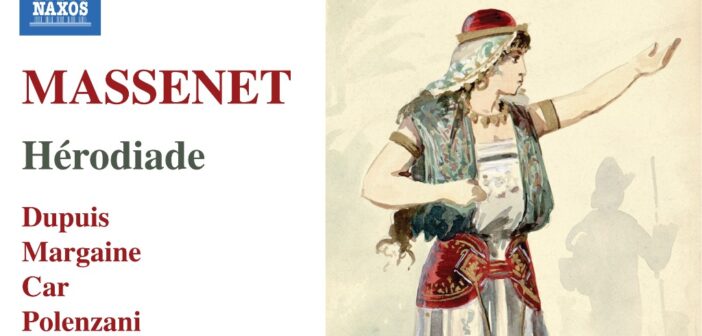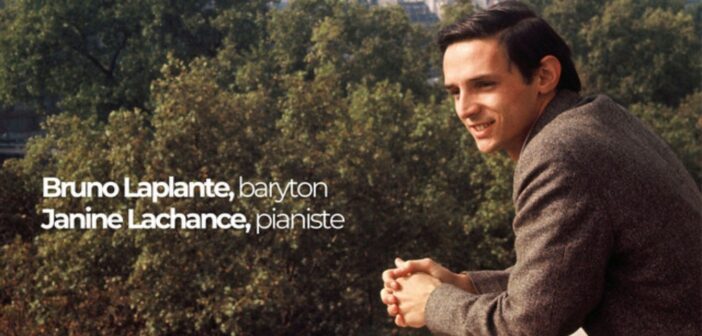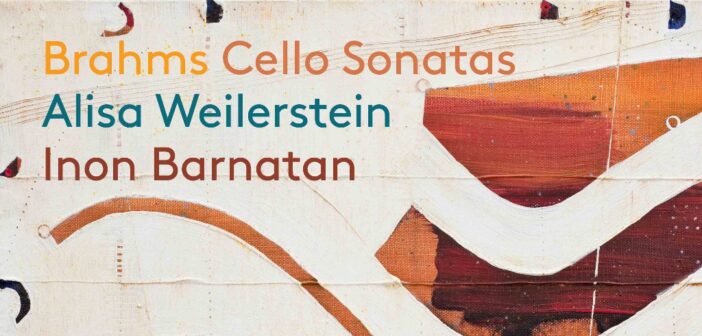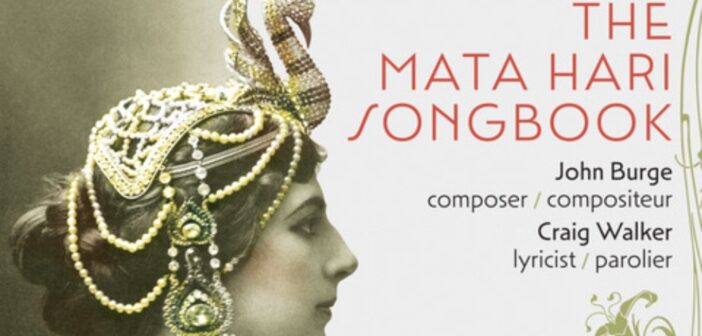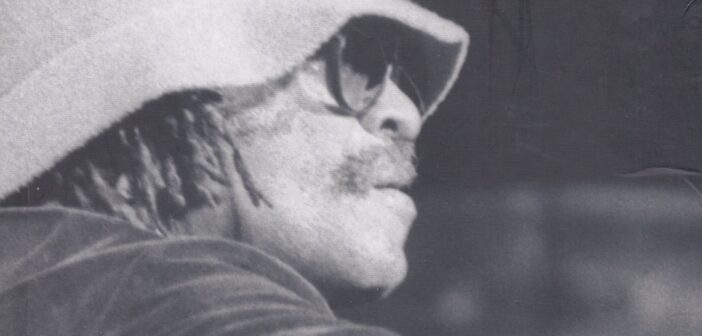It’s 30 years since I heard Gyorgy Ligeti explain why he was allowing his first string quartet to be performed after four decades lying in a drawer. The quartet, composed in 1954, was too close to its sources. “It’s Bartok’s seventh,’ said Ligeti, ‘But I’ve now realised that’s not such a bad thing.” Titled Metamorphoses nocturnes, the quartet has buzzing insects, whispering grasses and many things that go bump in the night. In amidst the feral noises there are wistful lines of melody and a macabre sense of humour, blacker by far than Bartok’s Bluebeard. Every now and then, a…
Browsing: CD and Book Reviews

Migrant Voices Itamar Erez, guitar, requinto, bandola; Hamin Honari, drum, daf, tombak, cymbals Independent, 2024 Given the current crisis in the Middle East, Migrant Voices by the duo Itamar Erez, a Canadian guitarist of Israeli origin, and Hamin Honari, a Canadian percussionist of Iranian origin, shows that art can transcend warring doctrinal divides. Their album offers two actors for peace a platform in these tragic times. With the exception of the title track, the album is made up of free improvisations. And that is precisely where its great merit lies. Erez (guitar, requinto and bandola) and Honari (frame drum, daf,…

Massenet : Hérodiade Nicole Car, soprano; Clémentine Margaine, mezzo-soprano; Etienne Dupuis, baritone; Matthew Polenzani, tenor; Orchestra and Chorus of Deutsche Oper Berlin; Enrique Mazzola, conductor Naxos, 2024 In 1881, more than 20 years before Richard Strauss, Jules Massenet wrote an opera starring the biblical heroine Salomé, but the work was named after her mother, Hérodiade. At the time, Massenet was still considered a young composer, having achieved good success with Le roi de Lahore (1877), but his first big success, Manon (1884), was still to come. Commentators criticized the libretto of Hérodiade for being too disparate and cluttered, mixing up…

Flórez: Zarzuela Composers: José Serrano, Ruperto Chapí, Federico Moreno Torroba, Amadeo Vives, Pablo Luna, Géronimo Giménez, Agustín Pérez Soriano, Pablo Sorozábal, Rafael Calleja & Tomás Barrera, Reveriano Soutullo & Juan Vert; tenor: Juan Diego Flórez; Sinfonía por el Perú Youth Orchestra and Choir; Guillermo García Calvo, conductor Florez Records, 2024 The zarzuela, that typically Spanish operatic genre, alternates singing and spoken dialogue, treating less dramatic subjects than one usually finds in Western European opera. It is roughly the equivalent of German Singspiel or French opéra comique, but these comparisons perhaps do not do justice to works that are more complex…

Reynaldo Hahn Mélodies: Chansons grises, Études latinesBruno Laplante, baritone; Janine Lachance, Rena Sharon, Marc Durand, pianoNouveau Théâtre Musical, 2024 “Si mes vers avaient des ailes” (Victor Hugo), “L’heure exquise” (Paul Verlaine) and “L’énamourée” (Théodore de Banville). These are standouts among the 30 or so songs reissued on this album by French-Canadian recitalist Bruno Laplante. In this first volume of his Livre d’or de la mélodie française, the baritone performs songs by Venezuelan-born French composer Reynaldo Hahn (1874-1947) set to some of French literature’s most iconic texts. Elegance and precision. These are the two key words that come to mind when…

Brahms Cello Sonatas Alisa Weilerstein, cello; Inon Barnatan, piano Pentatone, 2024 Alisa Weilerstein and Inon Barnatan return with an album devoted to Brahms: three famous sonatas, one of which is an arrangement of the Sonata for Violin and Piano No. 1 in G major. “This project is a celebration of our shared artistic vision and the mutual respect that has developed over many years of playing together,“ says the cellist in the liner notes. To play Brahms, you need an understanding and a balance between each of the parts that only a long collaboration can provide. In the Sonata No.…

Burge/Walker —The Mata Hari Songbook Patricia O’Callaghan, soprano; John Burge, piano Centrediscs, 2024 The Mata Hari Songbook, with music by John Burge and lyrics by Craig Walker, began life as a two-act stage show One Last Night with Mata Hari that played in Kingston, Ont., in 2017. The CD features 10 of the songs from the show, bookended by piano pieces from Burge’s Mata Hari Suite. Burge is at the piano with Toronto’s multi-genre chanteuse Patricia O’Callaghan as Mata Hari. Mata Hari, on the evening before her execution, relates her life story. She recounts her journey from being mistress to…

Schubert: Winterreise Rachel Fenlon, soprano & piano Orchid Classics, 2024 Franz Schubert’s devastatingly confessional song cycle, Winterreise (1828) charts the journey of a spurned narrator through 24 songs set to poems by Wilhelm Müller. It is a pinnacle of Romanticism and foundational to the German Lied (Song) tradition. Although more associated with male singers, it was recorded by German mezzo-soprano Elena Gerhardt as early as 1928 and, in more recent times, by mezzos Christa Ludwig, Brigitte Fassbaender and contralto Nathalie Stutzmann. What makes Canadian soprano Rachel Fenlon’s new traversal unique is that she acts as her own accompanist, the first…

As 2024 comes to an end, let’s take a look (and a listen) to those releases we may have missed this year… The Sky Will Still Be There TomorrowCharles Lloyd, saxophone; Jason Moran, piano; Larry Grenadier, bass; Brian Blade, drumsBlue Note Records At 86, Charles Lloyd could claim the title of “Grand Old Man of the Tenor” but maybe he is too idiosyncratic for that… On his latest for Blue Note, he is reunited with pianist Jason Moran and bassist Larry Grenadier, but it’s the presence of Brian Blade (on his first recorded meeting with Lloyd) that makes this one…

In the Brewing Luminous: The Life & Music of Cecil Taylorby Philip FreemanWolke Verlag, 2024, 344 p. Like his contemporaries and fellow avant-garde masters Bill Dixon and Ornette Coleman, Cecil Taylor (1929-2018) was not the easiest subject to approach for a music writer. Enigmatic, frequently baffling interviewers and critics who tried to approach him, he could be almost hostile at times—or at least a bit condescending. (This reviewer recalls an uncomfortable dialogue where Taylor tried to express to a French documentarist what it means to be born “on the wrong side of the tracks.”) At other moments, Taylor just enjoyed…





